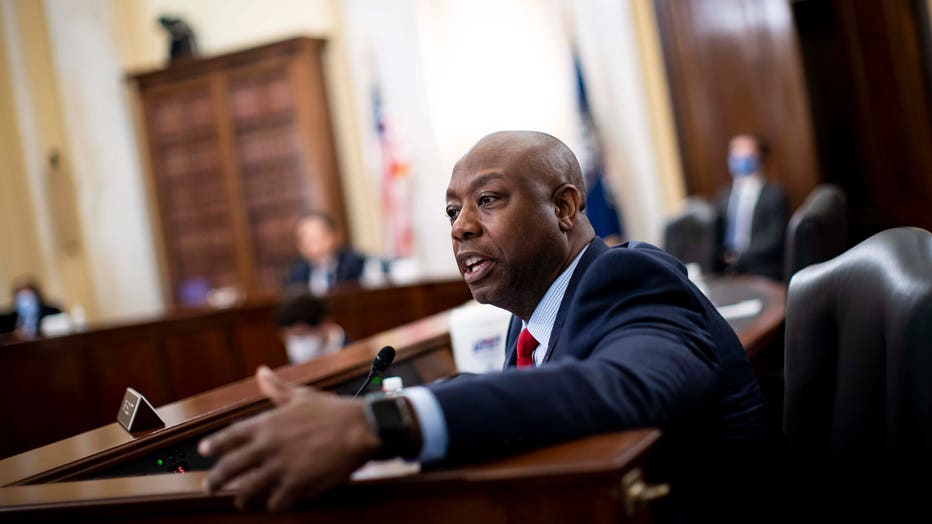Senate Republicans proposes policing changes in 'Justice Act'
WASHINGTON - Senate Republicans unveiled proposed changes to police procedures and accountability Wednesday including an enhanced use-of-force database, restrictions on chokeholds and new commissions to study law enforcement and race, according to a draft obtained by The Associated Press.
The “Justice Act” is the most ambitious GOP policing proposal in years, a direct response to the massive public protests over the death of George Floyd and other black Americans.
“We're serious about making a law here,” said Senate Majority Leader Mitch McConnell, R-Ky.., at a press conference at the Capitol announcing the swift launch of floor debate next week. The Senate's lone black Republican, Tim Scott of South Carolina, led a task force of GOP senators in compiling the package.
Scott spoke of his own experiences being stopped by police and urged colleagues to understand it's “not a binary choice” between supporting black people or law enforcement.

Senator Tim Scott, a Republican from South Carolina, speaks during the Senate Small Business and Entrepreneurship Hearings to examine implementation of Title I of the CARES Act on Capitol Hill in Washington, D.C. on June 10, 2020. (Photo by AL DRAGO/
“We hear you,” he said to the families of those Americans killed by police. “We’re listening to your concerns.”
The 106-page bill is not as sweeping as a Democratic proposal, which is set for a House vote next week, but it shows how swiftly the national debate has been transformed as Republicans embrace a new priority in an election year.
The GOP legislation would beef up requirements for law enforcement to compile use-of-force reports under a new George Floyd and Walter Scott Notification Act, named for the Minnesota man whose May 25 death sparked worldwide protests over police violence, and Scott, a South Carolina man shot by police after a traffic stop in 2015. Scott is not related to the senator.
It would also establish the Breonna Taylor Notification Act to track “no-knock” warrants. The 26-year-old was killed after police in Kentucky used a no-knock warrant to enter her Louisville home.
RELATED: Louisville unanimously votes to ban ‘no-knocks’ after Breonna Taylor’s death
Focusing on ending chokeholds, the legislation encourages agencies to do away with the practice or risk losing federal funds. Many big city departments have long stopped the use. The legislation also provides funding for training to “de-escalate” situations and establish a “duty to intervene” protocol to prevent excessive force.
The GOP effort seeks to reach across the aisle to Democrats in several ways. It includes one long-sought bill to make lynching a federal hate crime and another to launch a study of the social status of black men and boys that has been touted by House Speaker Nancy Pelosi.
McConnell on Wednesday challenged Democrats in the Senate not to block consideration next week, but to allow the debate to begin.
The Republican package — dubbed the “Just and Unifying Solutions To Invigorate Communities Everywhere Act of 2020” — also includes a bipartisan Senate proposal to establish a National Criminal Justice Commission Act and extends funding streams for various federal law enforcement programs, including the COPS program important to states.
The package includes a mix of other proposals, including tapping the Smithsonian’s National Museum of African American History and Culture to create a law enforcement training curriculum on “the history of racism in the United States.” Another closes a loophole to prohibit federal law enforcement officers from engaging in sexual acts with those being arrested or in custody.
Expenditures for the bill would be considered on an emergency basis, so as not to count against federal deficits.
The GOP proposal comes amid a crush of activity from Washington as President Donald Trump announced executive actions Tuesday to create a database of police misconduct.
Trump vowed a “big moment” if lawmakers could act to pass legislation. At a Rose Garden event for his executive actions, he declared himself “committed to working with Congress on additional measures.”
The Senate could vote as soon as next week.

